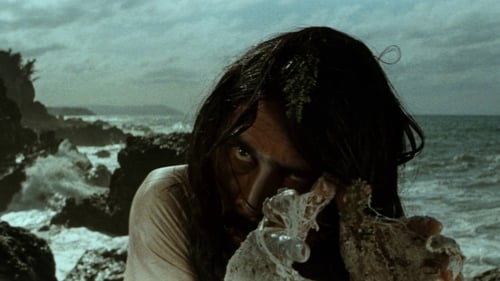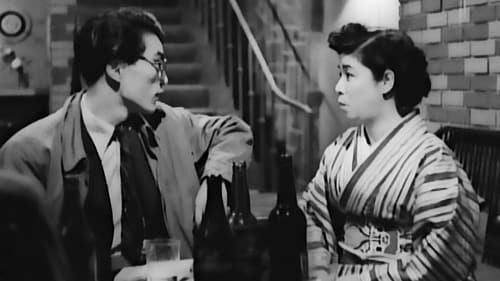
Masseur
Hirosuke, a medical student with almost no recollection of his past, is trapped in an asylum, despite being perfectly sane. After escaping from the loony bin, and being framed for the murder of a circus girl, he spots the photo of a recently deceased man, Genzaburo Komoda, to whom he bears an uncanny resemblance. By pretending to have been resurrected, Hirosuke assumes the dead man's identity, fooling everyone, including Komoda's widow and mistress. Whilst at the Komoda household, Hirosuke recalls memories that convince him to travel to a nearby island, home of Jogoro, the web-fingered father of Genzaburo. Whilst on the island, Hirosuke not only discovers Jogoro's plans to build his 'ideal community' (by transforming perfectly normal humans into hideous freaks), but also the awful truth behind his own identity.

Home drama about tin craftsmen and their families in downtown Tokyo. Though poor, they do not lose their cheerfulness or give in to oppression.

A luckless geisha struggles to make a living for herself and her young son.

Kane, the maid
Hideko, a young Baseball fan, determined to cheer for her favourite baseball team by creating a new song for them.

Song of the White Orchid was a co-production of Toho and Mantetsu, the railway that served the colonial region of Manchuria, and the first film in the Kazuo Hasegawa/Shirley Yamaguchi (Ri Koran) “Continental Trilogy.” Handsome Hasegawa (representing Japan) runs up against an impertinent Yamaguchi (representing the continent); not surprisingly, in the course of the film the woman comes around and realizes the benevolent intentions of the Japanese. In Song of the White Orchid Yamaguchi leaves Hasegawa, who plays an expatriate working for the railway, because of a misunderstanding. She joins a communist guerilla group plotting to blow up the Manchurian railway. Learning of the subterfuge that led to the misunderstanding, she renews her faith in Hasegawa—and by extension Japan—and tries to undermine the plot.



